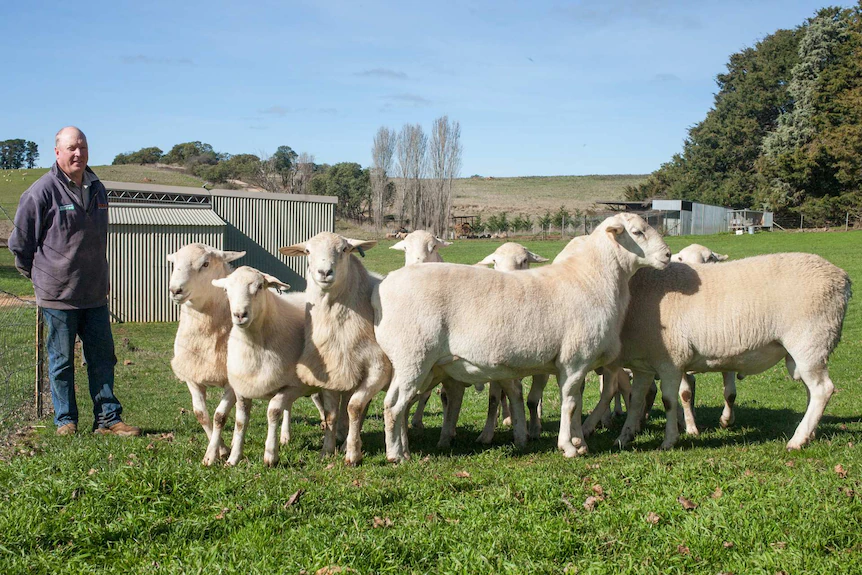A record-breaking Australian white ram has sold for an eye-popping $240,000 at a stud sale in Central New South Wales.
The Australian white stud sheep was sold by Tattykeel at Black Springs near Oberon, beating the previous meat sheep record of $165,000 set by the same stud in 2021.
It is the most expensive sheep sold since 1989, when a merino sold for $450,000.
That price was achieved by the Collinsville stud when there was a fixed price for wool and the industry was riding a massive high, only to come crashing down shortly after.
The sale came close to reaching the record price of $280,000 paid for an Angus bull set last year at Millah Murrah, Bathurst.
The $240,000 ram was purchased by the Elite Australian White Syndicate, made up of four buyers from across New South Wales.
Steve Pederick from the syndicate said it was an “elite ram”.
“We will utilise it across our four stud groups with the intention of using his exciting young genetics to bolster our studs,” he said.
“He has extremely good growth rates — he has certainly been one of the fastest growing rams as a lamb.
“He has got exceptional muscle, depth, he is very balanced and is very deep right through his carcass.”
Tattykeel stud owner Graham Gilmore said he did not expect the sale to reach that price.
“It is pretty amazing to think you would sell a ram for that kind of money,” he said.
“We did get $165,000 for one last year, so it has smashed that record.”

The price tells a story about the state of the wool and sheep meat industries.
Meat prices are riding high and Australia is currently experiencing a shortage of shearers that is driving up expenses associated with removing the wool.
“Shearing is so expensive — if you have got a composite sheep that has got a strong wool, you are losing money to shear that sheep,” Mr Gilmore said.
Meat sheep such as Australian whites have been selectively bred to have self-shedding coats.
Mr Gilmore said this has led to increased demand for Australian white sheep that do not produce wool.
“There is a huge change in the industry and if you’re breeding sheep for meat you don’t need wool on them,” he said.
Mr Pederick said the sheep were more adapted to Australian conditions due to their lack of wool.
“We don’t need to shear, we don’t need to crutch and there are absolute minimum flystrike issues,” he said.
“It is very low maintenance, easy care and high productivity — they tick a lot of boxes for us.”